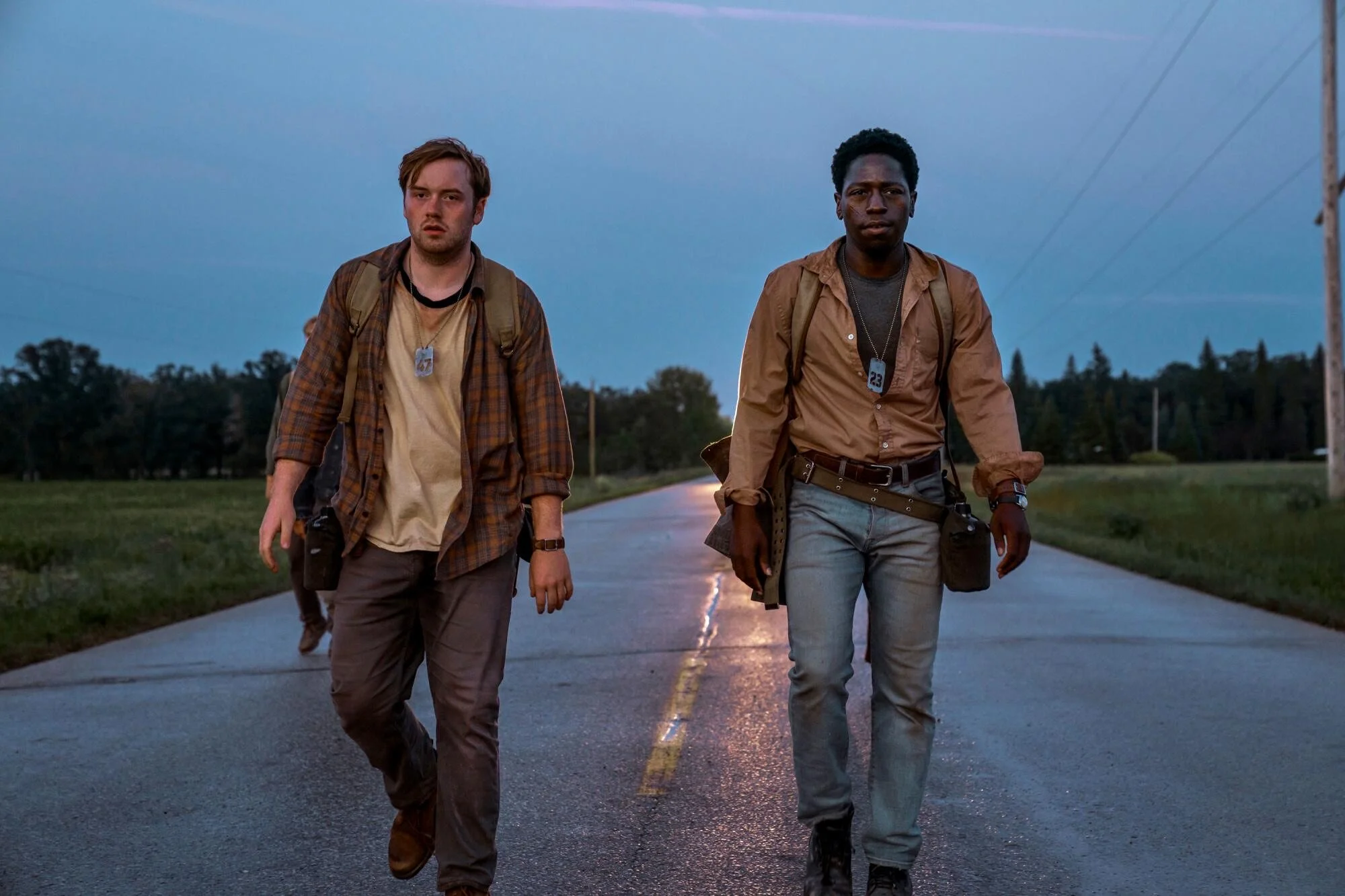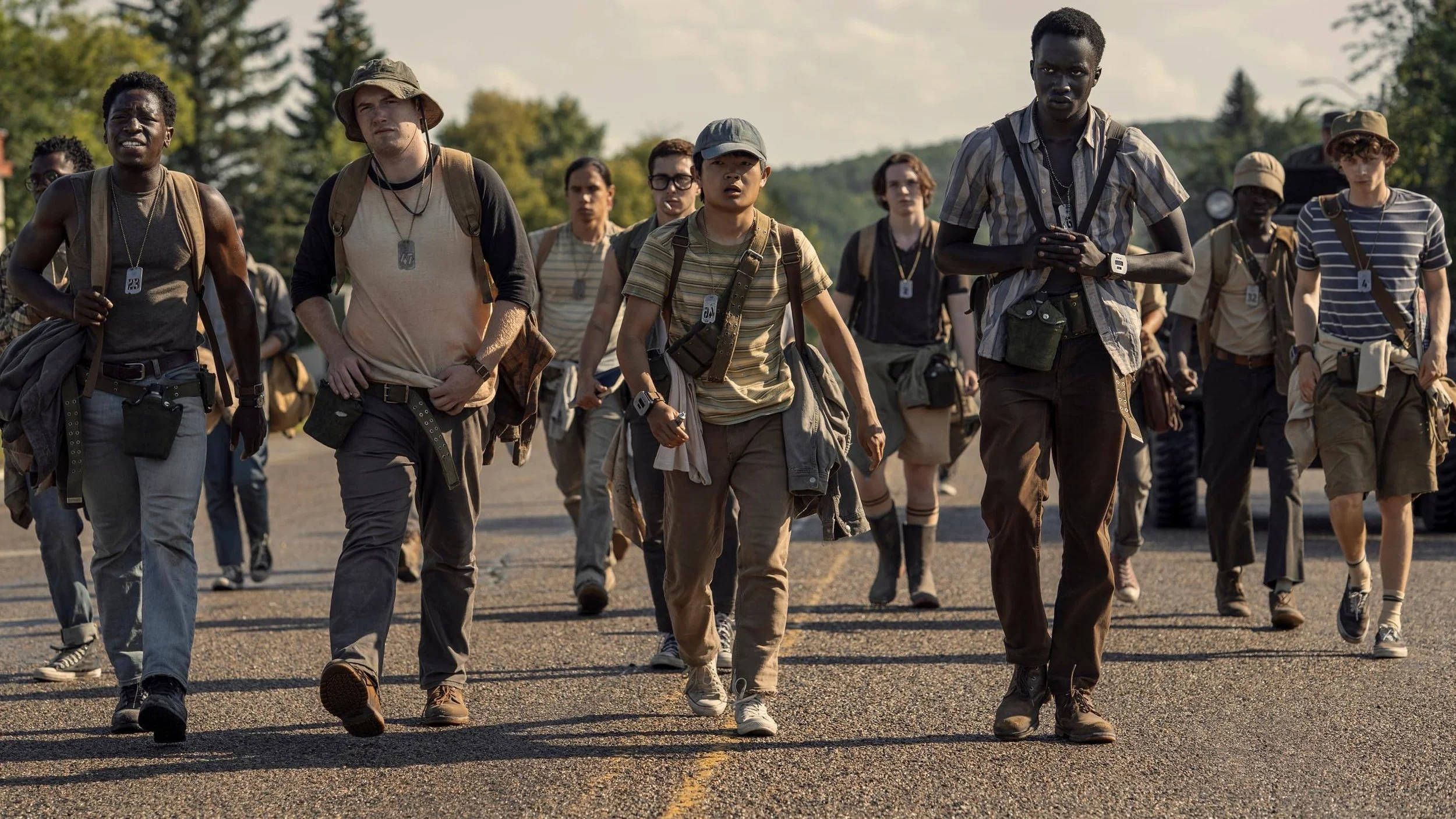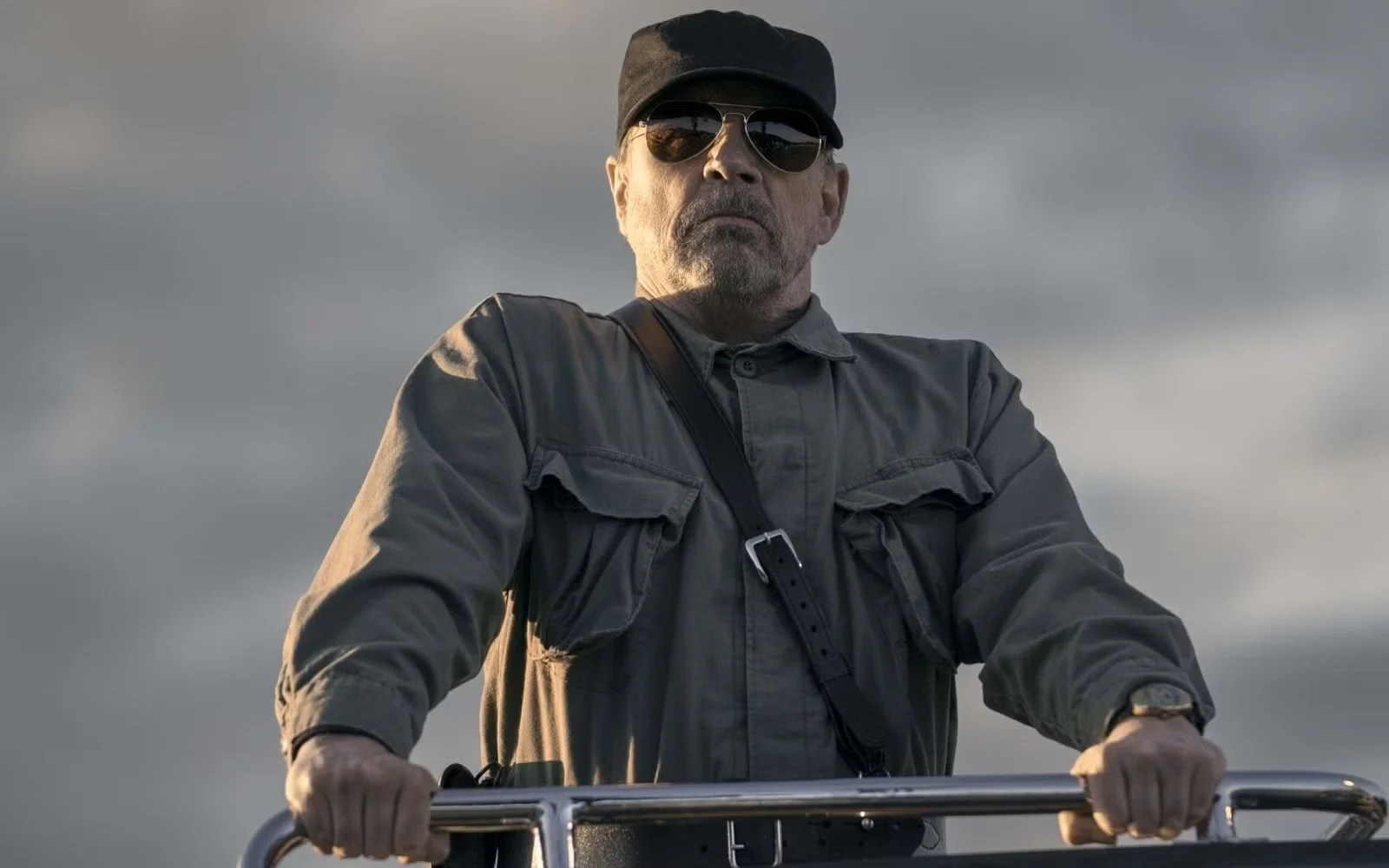The Long Walk Review: Grisly Stephen King Dystopian Thriller Hits Close to the Bone
Francis Lawrence adapts King’s 1979 novel, which follows a walking marathon where teenage boys must keep pace or die
by Alex Secilmis 22 September 2025
© Lionsgate
To a younger generation, The Long Walk may seem like a Squid Game or The Hunger Games rip-off. Older viewers may think of Sydney Pollack’s 1969 thriller They Shoot Horses, Don’t They? and even Shirley Jackson’s infamous short story, The Lottery. Clearly, the framework of a violent game as a vehicle for sociopolitical satire hasn’t lost an ounce of its relevance.
Of course, the Stephen King novel on which the film is based precedes most of these stories. The Long Walk was published in 1979 under the pseudonym Richard Bachman, but it was written during King’s freshman year of university in the mid-60s. He had poured his frustration over conscription during the Vietnam War onto the pages, marking his first finished book. A film adaptation had lingered in development hell for nearly four decades, something that the author attributes to the story’s “merciless quality”—a strong assessment given that he is no stranger to bleak literature. But if King’s novel about a deadly walking contest was once considered unfilmable, Hunger Games director Francis Lawrence has proved doubters wrong in style. Smaller-scale than Lawrence’s other dystopian property but twice as gruesome, The Long Walk is a brutal, moving portrait of camaraderie in a totalitarian hellscape.
© Lionsgate
In an alternative late 20th century, the US is defined by economic strife and an authoritarian regime. Poverty is so widespread that, every year, young men willingly enter a lottery to participate in The Long Walk, a life-or-death marathon where 50 boys compete for a prize of unimaginable riches and a single, open-ended wish. Fall below a pace of 3 miles per hour, and you get a warning; get more than three, and you die (but a warning is removed every hour you keep above the speed limit). The special cruelty of the contest is the psychological element: there is no finish line; you just have to be the last man walking.
Intimate and grounded but boasting blockbuster flair, The Long Walk is both a sensitive exploration of masculinity and a gruelling R-rated spectacle. The two elements fuel one another, with our attachment to the characters ensuring we feel the full force of every gunshot. Aside from a few flashbacks, all we see is the titular event, and the narrow focus means that the film, first and foremost, is a character study. The ensemble of young actors is unilaterally in fine form, with Cooper Hoffman making for a strong lead as Ray Garraty, lending a hardened but tragically gentle quality to a character wrestling with grief. Meanwhile, after his android tour de force in Alien: Romulus, David Jonsson is again the standout as the charismatic Peter McVries. The British actor delivers a powerhouse performance undercut by disarming compassion.
© Lionsgate
While the over 300-mile-long journey offers plenty of time to flesh out the contestants, from the religious Art Baker (Tut Nyuot) to comically upbeat Hank Olson (Ben Wang), the film’s villain is a caricature. A cartoonishly evil Mark Hamill plays “The Major”, who justifies The Long Walk as a response to an “epidemic of laziness” and repeatedly yells at the boys about how much “sack” they have for risking their lives in the competition. Over-the-top in just the right way, Hamill’s performance as an oppressive leader is uncomfortably applicable to today’s geopolitics.
© Lionsgate
As the characters march towards a heartbreaking ending, Lawrence’s harrowing but humane film will leave you angry and frightened in equal measure. Prioritising character moments above all else, The Long Walk is both an air-tight allegory and a devastatingly simple story of friendship.



